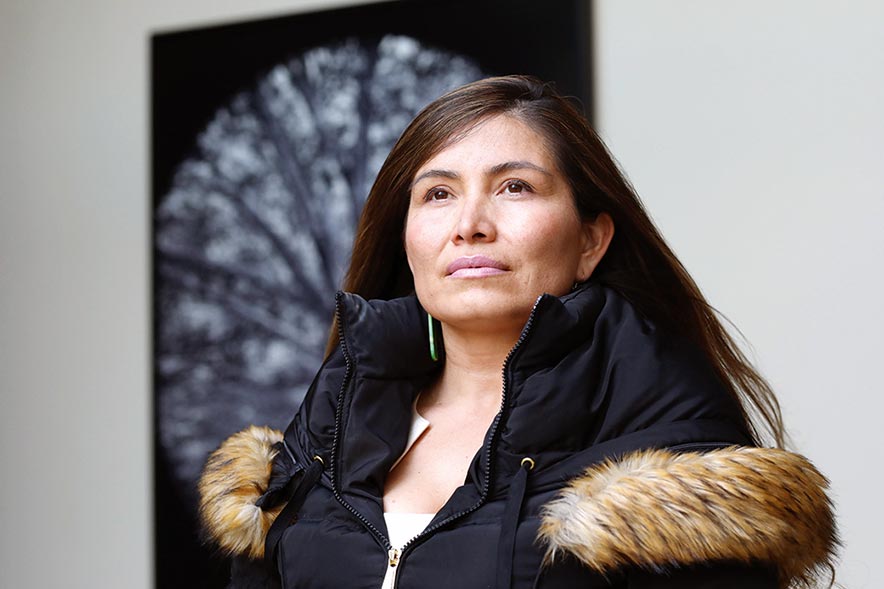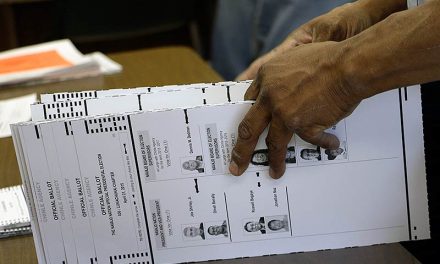
Guest Column | Stop extractive industry, give power, water to Diné homes
By Ethel Branch
In January, Council considered legislation (No. 0232-21) to approve three helium development projects for Navajo Nation Oil and Gas Company. This legislation was tabled until the spring Council session. The projects are advanced as an important economic development opportunity for the Navajo Nation.
Yet, we, as a Nation, have tried extractive development as a source of economic development for a century, and it has never brought us wealth. Instead, extractive development has poisoned our land, water, animals, and people. In the face of COVID-19, many of our loved ones have paid for this with their lives.

Submitted
Ethel Branch
Most notably, we allowed over 1,000 uranium mine sites to be developed on our homelands to protect the national security interests of the United States during the Cold War. This development made our Nation the site of the largest nuclear waste release in the United States when the Church Rock mill dam burst into the Rio Puerco.
Most of these sites remain unremediated and are estimated to take over a century to clean up. This is not to mention the damaging contaminant legacy of the extensive coal, oil and gas development that has also occurred on our lands.
The century-long treatment of the Navajo Nation as a National Sacrifice Area by the United States has left our community health vulnerable. The Navajo Cancer Workgroup concluded that the Diné die from stomach, liver and kidney cancers at two to four times the rate of non-Hispanic whites.
The level of unremediated contamination on our lands is so extreme that the Navajo Birth Cohort Study has confirmed that Diné mothers exposed to uranium radiation are transferring the poison from their bodies to their unborn babies through their placenta.
Coal development has compounded the incidence of cancer in our community and added the challenge of upper respiratory illnesses to the impacts our people have absorbed as a result of extractive development.
When COVID-19 arrived, it entered into a human environment with a disproportionate incidence of underlying health conditions that made our people more susceptible to contracting the virus and suffering complications. It is no wonder that we quickly surged ahead of all other U.S. jurisdictions in our COVID-19 contraction rate in May 2020.
In the context of COVID-19, the poisoning of our people by unremediated extractive development sites has literally sacrificed our people’s lives. To date, that includes over 1,700 of our relatives, mostly elders aged 60 and older.
A century of extractive development has not brought wealth to our people or our Nation. Instead, many of our people continue to live in developing world conditions. This too has made us vulnerable to adverse health outcomes, particularly in the face of COVID-19.
The Navajo Water Project identifies that Navajo people are 67 times more likely to be without running water than others in the U.S. Our Relief Fund has found that 50% to 70% of families in some communities lack access to indoor plumbing.
The historic tolerance of our tribal government and the federal government to these inequitable conditions in our community has amplified our vulnerability to COVID-19.
For example, the lack of piped water in over a third of Navajo homes created a barrier to easy handwashing opportunities for the families that live in those homes.
Unsurprisingly, the chapters with uncontrolled spread on our Nation often tracked closely with the chapters that have the highest number of homes without running water.
The lack of electricity in another third of Navajo homes led to increased food insecurity during the pandemic, and made isolation impossible for unelectrified families. Without electricity, they did not have a refrigerator to store food in. This meant they had to rely on other strategies to access fresh foods, like ice chest use, which required more frequent travel and shopping to access fresh food and ice.
It is time we stop sacrificing our land and our people to advance the U.S.’s national and corporate interests. It is also time for our government to address the inequitable living conditions in our community.
We still have more than $1.5 billion in ARPA FRF funds that could and should be used for that purpose as quickly as possible in order to prevent ongoing transmission of COVID-19 and additional related loss of life.
I pray our leaders will come together for the good of our people and focus their attention on the unique but fleeting opportunity ARPA funds present to transform our Nation and transition us away from the boom-and-bust of extractive development.
The continuation of our language, culture and way of life requires that we protect this one place we have to be Diné. No new extractive development should occur on our lands until all existing contaminants have been cleaned up and we are starting from a new baseline of strong ecological and human health.
Ethel Branch is interim executive director of the Navajo and Hopi Families COVID-19 Relief Fund.








 Highway 264,
Highway 264, I-40, WB @ Winslow
I-40, WB @ Winslow